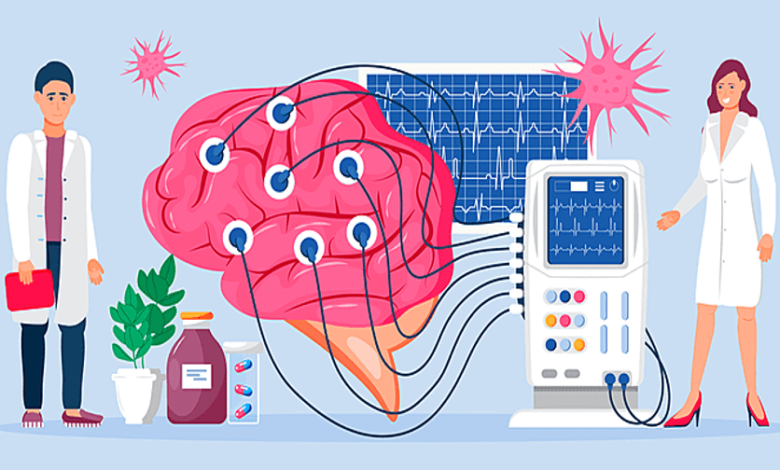How to Know When It’s Time to See a Specialist Doctor

What is a Specialist Doctor and How Do They Differ From General Physicians?
Specialist doctors undergo advanced training in a specific area of medicine such as cardiology, neurology, or orthopedics. Unlike general practitioners who handle a broad range of everyday health concerns, specialists focus on diagnosing and treating complex conditions that require in-depth knowledge. For instance, if you’re experiencing seizures or persistent migraines, a neurologist would be more equipped than a general doctor to offer a diagnosis and care plan. Knowing the difference helps you seek appropriate care at the right time.
When Your Symptoms Persist Beyond Primary Care Treatment
If you’re visiting your general physician repeatedly for the same issue and the symptoms don’t improve or worsen it’s a clear signal that you may need to see a specialist. Primary care providers are trained to manage common health issues, but persistent or evolving symptoms often indicate a deeper problem. For example, ongoing joint pain despite medications might require an orthopedic specialist to evaluate for conditions like arthritis or disc degeneration.
Chronic Conditions That Require Specialist Attention
Conditions such as diabetes, epilepsy, asthma, or autoimmune disorders often need long-term monitoring by a specialist. While general physicians can provide initial management, chronic diseases benefit from advanced diagnostic tools and tailored treatment plans. Specialists also help in adjusting medications, managing complications, and providing preventive strategies to avoid deterioration.
See also: Scientific Insights into Air Quality and Public Health
Referrals From General Practitioners
When your general doctor refers you to a specialist, it’s not necessarily a cause for alarm. Referrals are usually made to ensure you receive the most accurate diagnosis and targeted treatment. It also means your physician is collaborating with other experts to give you holistic care. Always ask why a referral is being made and what you should expect from the specialist consultation. This prepares you mentally and emotionally for the next phase.
Sudden or Severe Changes in Your Health
Unexpected changes in health such as sudden vision loss, difficulty speaking, unexplained weight loss, or sharp pains require immediate evaluation by a specialist. These may be early signs of serious underlying conditions like neurological disorders, cancers, or cardiovascular events. Delaying a specialist visit in such cases can lead to complications or missed treatment windows. Alongside medical attention, some individuals consider taurine supplements to support overall cardiovascular and neurological health. Always take sudden health changes seriously and seek help.
When Diagnostic Tests Suggest the Need for Expert Care
Sometimes, test results from routine checkups may show abnormalities that require a deeper investigation. Elevated liver enzymes, abnormal ECG readings, or unusual neurological scans often prompt referrals to specialists. These specialists can interpret complex results, order additional targeted tests, and determine whether intervention is needed.
Family History and Genetic Predispositions
If you have a family history of conditions like heart disease, Alzheimer’s, or cancer, seeing a specialist preemptively can be life-saving. Genetic counseling and early screenings can help catch diseases before symptoms arise. For example, if your parents had Parkinson’s disease, a neurologist can assess your risk and advise preventive steps. Specialists can personalize your care based on your genetic background and help you stay one step ahead.
Age-related Conditions That Benefit From Specialty Care
As we age, our risk for certain health issues increases. Older adults commonly face challenges such as memory decline, reduced mobility, or vision loss. Specialists like geriatricians, ophthalmologists, or orthopedic surgeons offer targeted strategies that go beyond basic health checks. Recognizing when age-related symptoms need specialist care can improve both independence and longevity.
Mental Health and the Role of Psychiatric Specialists
Mental health often gets overlooked, especially in early stages when symptoms seem manageable. However, if you’re dealing with ongoing anxiety, mood swings, or difficulty concentrating, a psychiatric evaluation might be necessary. Psychiatrists and psychologists provide therapies and medication plans tailored to your needs. Mental well-being is as crucial as physical health, and seeing a mental health specialist can be transformative when daily functioning or relationships are affected.
Location can also play a role. Cities like Ahmedabad have become centers for quality healthcare due to their combination of medical infrastructure and expert professionals. For instance, if you or a loved one are experiencing neurological symptoms, consulting a neurologist in Ahmedabad ensures access to modern diagnostics and experienced specialists in the field.
How to Choose the Right Specialist for Your Condition
Choosing the right specialist involves many considerations:
- Credentials and experience in treating your condition
- Hospital affiliations and access to diagnostic facilities
- Communication style and comfort level
- Referrals or patient reviews





